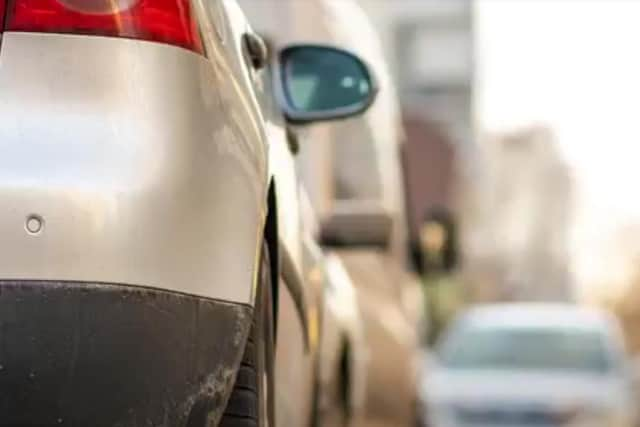Rising catalytic converter thefts in Scotland sparks Crimestoppers campaign to anonymously help catch culprits
Let us know what you think and join the conversation at the bottom of this article.
The week-long campaign, supported by the Neighbourhood Watch Network, aims to get people who know or suspect those involved in this lucrative crime to come forward anonymously with any information they might have.
Catalytic converter theft is becoming more prevalent due to the high value metals - including palladium, platinum and rhodium - found in the components which can be stripped out and sold on. Palladium was selling more per gram than gold in 2019.
Advertisement
Hide AdAdvertisement
Hide AdIt means catalytic converters can often sell for more than £500 on the black market, and the demand to replace stolen converters with cheaper second hand ones has increased.
A catalytic converter is located in a car’s exhaust system. It cleans exhaust gases before they leave an exhaust pipe and all new cars sold in Europe since 1993 by law must be fitted with one. Converters in hybrid cars often contain even more expensive, uncorroded metals.
Angela Parker, Scotland national manager at the charity Crimestoppers, said: “With an increase in people working from home or being furloughed because of the pandemic, thieves are taking full advantage of this, as more cars are parked in driveways or on the street during the day.
“We know there have been cases where criminals, who work very quickly, have threatened victims who have tried to confront them and some drivers have been repeatedly targeted.


“We know it can be difficult to speak up about crime, especially if it’s about someone you know. Please remember you can speak to Crimestoppers 100 percent anonymously and you will be doing the right thing, to keep your community safe from crime.
“For 33 years since our charity started, thousands of people have contacted us daily with their crime information. You can call our UK contact centre 24/7 on 0800 555 111 for free, or you can complete a simple, secure anonymous online form at Crimestopers-uk.org, only you will know you contacted us.”
John Hayward-Cripps, CEO of Neighbourhood Watch Network, said: “Whenever possible, we encourage you to park your car in busy, well-lit areas, or areas with CCTV coverage.
“It can take as little as 60 seconds for thieves to steal a catalytic converter, so keep an eye out for your neighbour’s vehicles, and if you suspect anything suspicious report it to the charity Crimestoppers anonymously.”
Advertisement
Hide AdAdvertisement
Hide AdComputer IP addresses are never traced and Crimestoppers has no collar line display or 1471 facility and calls have never been traced.
Prevention
To help protect your car from catalytic converter thieves, police forces across the country advise parking in a locked garage or in a well-lit, densely populated area and close to fences, walls or kerbs with the exhaust being closest to the barrier.
If the catalytic converter is bolted on, local garages can weld the bolts to make it more difficult to remove.
Motorists should also consider a ‘cage clamp’ which locks around the converter or have the unit etched with a unique ID number.
Dealerships can also fit a tilt sensor that activates the alarm if someone tries to jack up the car.